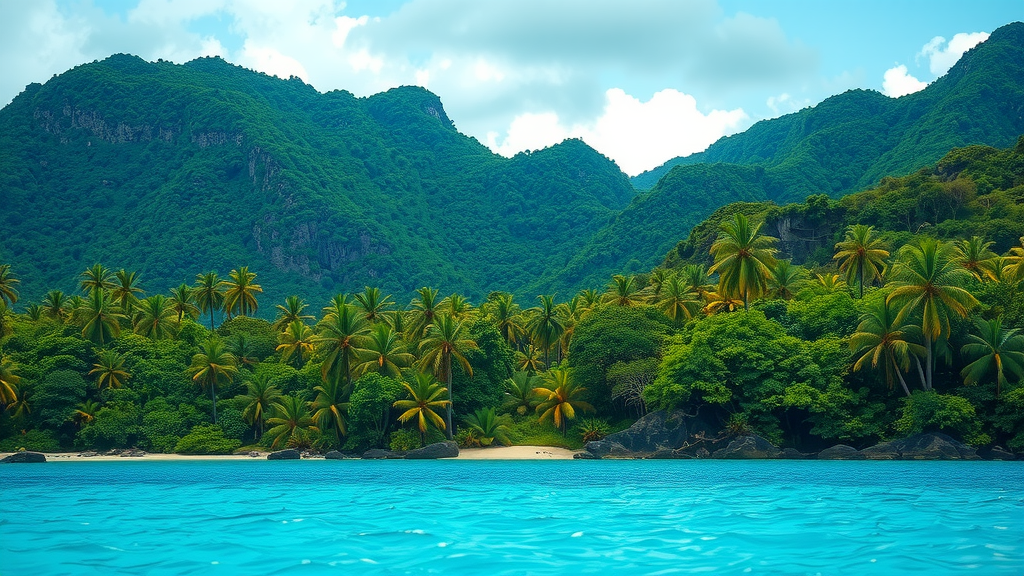Exploring the ties between the islands and Britain reveals a fascinating narrative steeped in colonial history. Once a British Overseas Territory, the Solomon Islands gained their independence in 1978, which marked a significant shift towards self-governance.
Today, the islands enjoy full sovereignty, free from direct British authority.
Elements of their colonial past continue to influence certain aspects of governance, creating a blend of old and new.
While the relationship has transformed over the years, it raises intriguing questions about how historical connections shape modern policies and the direction of the nation. As we look deeper, we can better understand the current state of independence in the Solomon Islands.
Are The Solomon Islands Independent Now
Yes, the Solomon Islands enjoy their own governance and identity today! It was back in 1978 when they shook off British rule, proudly stepping into their future. Being self-governing allows the Solomon Islands to craft their own path within the vast Pacific Islands, making decisions that reflect their unique culture and aspirations.
This independence means they are free to govern themselves, without outside interference shaping their political status.
It’s an opportunity for the citizens to determine their own direction, which is a significant aspect of their autonomy.
The history with the British Empire hasn’t completely faded.
Its influence still lingers, particularly in the realms of governance and cultural practices.
While the Solomon Islands thrive as a sovereign entity, the journey to this point has been marked by its fair share of complexities, especially concerning their governance and political landscape.
The political status of the Pacific Islands within the British Empire reflects a complex interplay of autonomy and governance under a constitutional monarchy.
Understanding The British Overseas Territory Status
Exploring the status of territories associated with the UK reveals a fascinating blend of governance and history. These unique regions operate under British jurisdiction, allowing them local government autonomy while still depending on the UK for international relations and defense.
It’s a nuanced setup that shapes everything from laws to cultural identity.
Turning to the Solomon Islands, they were once classified as a British protectorate.
Over time, their governance has evolved, leading to a more independent status today.
Although they still maintain connections with the Commonwealth, recent years have seen significant shifts in how they are governed, reflecting a growing sense of self-determination.
Examining their status sheds light on territorial claims that continue to influence local culture and governance structures. It’s a rich tapestry woven from historical threads, impacting the society we see today. Let the Commonwealth navigate its territorial claims while respecting international relations, empowering local government, and honoring indigenous culture.
UK Territories and the Solomon Islands
- The UK maintains jurisdiction over several territories, providing them with local governance while managing international relations.
- The Solomon Islands transitioned from a British protectorate to a more independent governance structure, reflecting their evolving political landscape.
- Connections with the Commonwealth continue to influence the governance and cultural identity of the Solomon Islands.
- Territorial claims and historical contexts play a significant role in shaping local governance and cultural practices in regions associated with the UK.
Colonial History And Its Impact Today
The implications of past empires linger in the corners of many nations, shaping their identities even today. The imprint of British influence can be seen in the social and political frameworks that govern daily life.
Many cultures have integrated specific traits and languages stemming from this influence, which significantly affects how communities view themselves.
Nations around the world still wrestle with the repercussions of European colonization, leading to persistent challenges in governance and international relationships.
Economic hurdles often stem from a dependency on external support, which directly impacts development aid strategies and can stifle growth. Recognizing these historical connections sheds light on how past events resonate within today’s geopolitical significance, especially when we consider the struggles for sovereignty and the implications for governance.
This ongoing interplay between history and modern affairs guides our understanding of how nations function and assert their autonomy.
How Does Sovereignty Affect Governance
The way a nation governs itself has everything to do with its level of independence. When a country exercises its authority freely, it crafts laws and policies that reflect its unique culture and needs.
This autonomy shapes the legal framework, allowing nations to prioritize areas like tourism or natural resources to boost their economies.
For example, countries rich in resources can steer their governance in ways that enhance these sectors, potentially sidelining others.
Yet, as nations engage in bilateral relations, outside influences can complicate these decisions, causing a tug-of-war between local interests and global pressures. This dynamic clearly illustrates how governance impacts the daily lives of individuals in those areas.
Governance and Independence
- Countries with strong governance can tailor laws to reflect their cultural values and economic needs.
- Resource-rich nations often prioritize sectors like tourism and natural resources to enhance economic growth.
- Bilateral relations can introduce external pressures that may conflict with local governance priorities.
- The balance between local interests and global influences affects the daily lives of individuals within the country.
The Role Of Local Government In Autonomy
Every community thrives when it has the ability to shape its own path. Local authorities are key players in this process, helping residents engage in decision-making that nurtures a sense of ownership.
When communities take an active role, it often leads to greater selfdetermination, allowing them to address specific needs directly.
Efforts to manage resources wisely can significantly enhance regional stability, as local governments focus on what truly matters to their residents.
Cultural heritage tends to flourish as local leaders champion the preservation of traditions and languages, strengthening the bonds among community members. While these governments strive to maintain their independence, they often find themselves navigating the delicate balance of central oversight.
The health of local governance is vital for promoting active citizen participation and a vibrant community identity. This connection sets the stage for deeper discussions, like the exploration of cultural heritage in unique places such as the Solomon Islands.
Exploring The Cultural Heritage Of The Solomon Islands
Nestled in the South Pacific, a remarkable tapestry of unique traditions and lively cultures awaits discovery. With over 900 islands, every community offers its own customs, languages, and art forms that weave together stories of enduring heritage and identity.
Local languages and dialects reveal a diverse cultural landscape, underscoring the importance of community ties and familial bonds.
Festivals often celebrate agriculture or life milestones, creating a vibrant atmosphere that showcases these connections and traditional practices.
The impact of environmental issues like climate change has also influenced these cultural expressions, introducing external elements while maintaining a strong sense of local identity.
Community-driven initiatives are vital for preserving this rich heritage. Locals engage actively in safeguarding traditions, ensuring that future generations can enjoy the cultural wealth of their homeland. Art forms such as wood carving and weaving serve not only as crafts but as expressions of identity and resilience in the face of challenges posed by natural disasters, climate change, environmental issues, trade agreements, and military presence.
| Cultural Aspects | Significance |
|---|---|
| Over 900 islands | Diverse customs, languages, and art forms |
| Community festivals | Celebrate agriculture and life milestones |
| Art forms (wood carving, weaving) | Expressions of identity and resilience |
| Environmental challenges | Influence on cultural expressions and local identity |
What Is The Significance Of British Influence
The historical ties with Britain have left a lasting mark on the Solomon Islands, shaping its social and political fabric. This influence is especially evident in public administration, where systems established during colonial times continue to guide governance.
The transition to independence didn’t erase these connections but rather transformed them, reflecting a blend of local and inherited practices.
Educational programs initiated during colonial rule also play a significant role today, contributing to the richness of language diversity among the people.
The remnants of British laws still steer legal frameworks, ensuring that essential aspects of governance maintain some continuity. As we look at these influences, it’s clear how deeply intertwined they are with the daily lives of Solomon Islanders.
Current International Relations And Trade Agreements
Exploring the interplay of nations today reveals a rich tapestry shaped by various historical influences. Trade agreements often echo past colonial legacies, guiding current interactions between countries.
For example, as nations balance their health systems, they must also factor in these agreements, which can significantly influence economic growth and social systems.
Expatriate communities contribute to this dynamic, enhancing bilateral ties while moving across borders.
It’s intriguing how these elements connect, impacting everything from infrastructure investment to diplomatic discussions. A deeper look into these relationships sheds light on the complex web of global commerce and cooperation we see today.
| Historical Influence | Current Trade Agreements |
|---|---|
| Colonial Legacies | Impact on Economic Growth |
| Expatriate Communities | Bilateral Ties Enhancement |
| Infrastructure Investment | Diplomatic Discussions |

